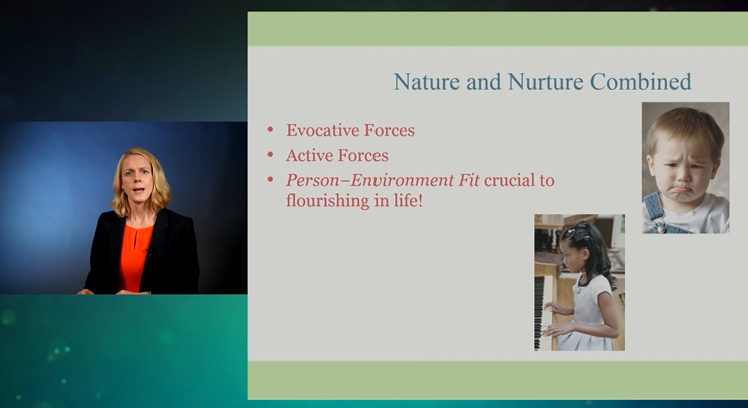
Maria Hopkins, the director of Undergraduate Studies and professor in the Department of Psychology, has been awarded the 2025 Provost’s Transformative Online Course Award (TOCA) from UAB for her online course Developmental Psychology (PY 212).
The course has been taught for years in person at UAB and an online version was created several years ago. Hopkins says that the course was strong to begin with, but after listening to students and learning more about good online course design, she “wanted to create a course that felt more dynamic and engaging,” she said. She and her colleagues also noted the less than acceptable DFW rate for the course and felt sure students would do better with a better designed course.
In the process, she realized one weakness of the current online course was that they attempted to just move the in-person version online without considering how students engage with material online. She recognized that to create a good online course, we simply cannot replicate the in-person version online. “We have to reimagine it,” she said.
Among the things she worked on, with the help of OLT’s instructional design team, was ensuring that she was “maintaining a visible presence” in the course as she put it, because it is one of the things that can be lost when moving from the classroom to an online environment. Students sometimes barely recognize that there is an instructor on the other side of the page.
So, she created frequent, personalized feedback opportunities throughout the course. For instance, instead of a single end-of-term paper, the course now has weekly, reflective journal assignments allowing students to apply developmental principles to their own lives, families, or experiences while receiving regular instructor feedback. She also creates mini-video lectures with embedded questions, posts video announcements, holds synchronous, online office hours, and tries to be as responsive as she can to student questions.

In addition to short video lectures, Hopkins added video announcements and more frequent opportunities to provide feedback to students on their work.
It worked. One of the reviewers for the TOCA award noted that, “the strengths of the course are the strategies for learner to learner and learner to instructor engagement, which create an interactive online learning community.”
Another modification came from student feedback. She found that many of her students are working adults balancing multiple responsibilities who find it difficult to focus on multiple courses at a time, so she changed the course from a full semester to 7 weeks. With the shorter format, students take just one or two courses at a time and can concentrate on the course more fully even with the compressed time frame. The improvement in the DFW rate after making the change confirmed for her that the decision was a good one.
Hopkins knew that creating opportunities for student-to-student interaction was also an important part of designing an effective online course. But in the existing online version, her students found the group assignment difficult to manage with their complex schedules, especially those working adults who were prevalent in the course. So she modified a group assignment to be an individual discussion-based assignment that still promotes student-to-student interaction. Students present and critique evidence-based positions on topics, such as the use of corporal punishment or the effects of screen time for children, in discussion posts rather than working as a group to create a position on the topic. Students critique each other’s positions and use of research evidence. “That's how we made those individualized,” she said, “but still allowed them to engage with their peers.”
While she is happy with the course and the way it is working, she is quick to add that a course is never really finished. She said, “I am constantly using the feedback that I receive from students,” from both the end of the term IDEA evaluations as well as mid-term feedback she collects to see what is working well and not so well. “Constant feedback from students is really essential,” she said.